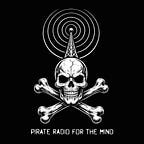The universe is falling apart. That is not a metaphor. That is physics. That is the second law of thermodynamics. That is entropy winning every single time you take a breath, think a thought, care about anything at all.
Drew M. Dalton and speculative realism refuse to ignore this. No transcendent meaning. No cosmic purpose. No metaphysical safety net catching you when you dissolve back into the substrate you temporarily organised yourself out of. Philosophy has spent thousands of years building escape routes from matter, insisting consciousness exists somewhere outside the physical, pretending your caring about things makes you an exception to the laws that govern everything else.
It does not. You are meat that thinks about being meat. You are matter that cares about matter. Briefly. Improbably. Before entropy equalises everything back to lukewarm silence.
This episode is the final descent into what entropy actually demands of ethics. Not the consoling narratives humanism offers. Not the absurd heroism existentialism clings to. Not the hope that things get better or that your suffering gets redeemed or that somewhere on some scale justice balances out. None of that survives contact with thermodynamics.
What survives is this: you are here now and while you are here you can choose to increase suffering or decrease it. Not because the universe validates that choice. Because the nervous systems experiencing the effects of that choice register the difference. And their registering is the only scale where mattering happens.
We move through the consolations philosophy built and why they crumble when you stop pretending consciousness transcends matter. We face the vertigo of recognisng cosmic insignificance without the safety net of transcendent meaning. We examine whether hope is luxury or necessity and whether commitment without consolation is the only honest stance left. We draw the line between meaninglessness, which is a fact about the cosmos, and suffering, which is a fact about embodied experience. And we build ethics on radical doubt, on the recognition that you cannot know ultimate truths but you can know proximate realities, that you cannot justify caring cosmically but you can practice caring locally.
This is not nihilism. Nihilism says nothing matters because everything is meaningless. This says everything is meaningless cosmically and mattering happens anyway, in bodies, in pain, in the immediate interactions between complex systems that temporarily resist equilibrium before equilibrium wins.
You are that temporary resistance. Your ethics are that temporary resistance. And the fact that resistance is temporary does not make it futile. It makes it urgent. It makes it the only thing you can actually do while you are here.
The universe will not tell you that you matter. But the person next to you might notice whether you increased their suffering or decreased it. And their noticing is all the ethical foundation you will ever need or will ever get.
This will not give you hope. It will give you clarity about what you are, what ethics can be when you stop lying about cosmic significance, and what you can do in the brief window before entropy erases all evidence you were ever here.
Not because doing it matters eternally. Because not doing it matters immediately to the systems capable of experiencing the difference.
And immediate is all there is.
Much love, David x











